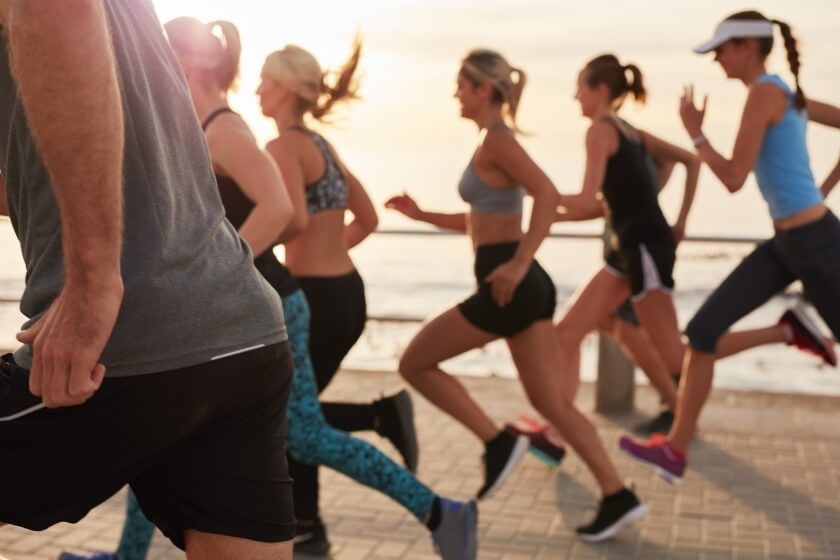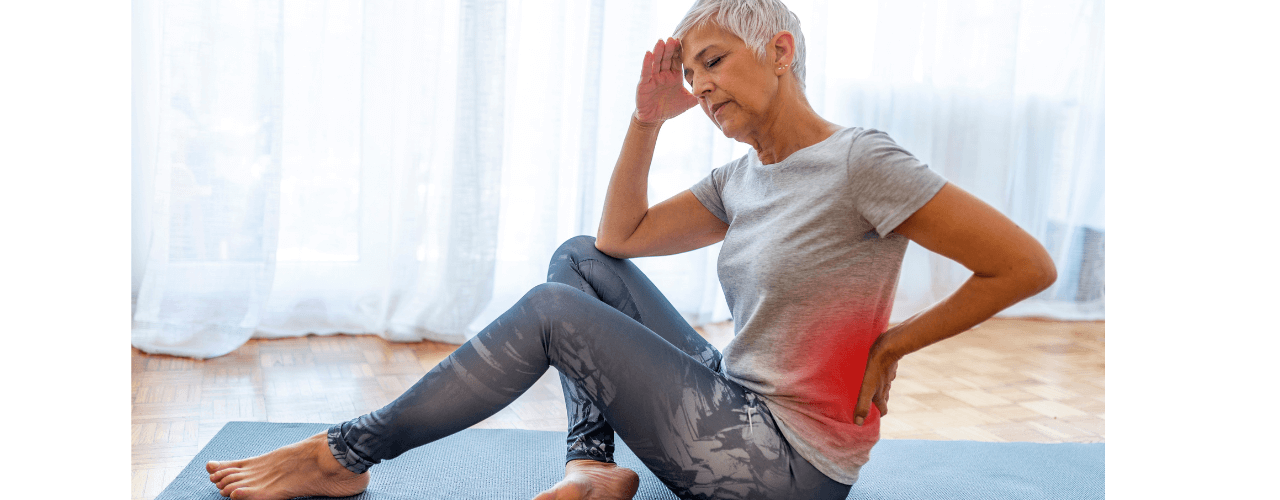Summer is here, and so is race season! Whether you’ve signed up for your first 5K, are planning a triathlon, or just enjoy riding your bike on the weekends, there’s no better time to get moving. But while races and events offer incredible motivation, they also demand more from your body—so training smart is key.
Why Signing Up for a Race Is One of the Best Things You Can Do for Your Health
Committing to a race does more than fill up your calendar. It gives your workouts direction and purpose. Whether it’s a 5K or a full marathon, putting an event on your schedule can instantly transform your daily routine—from your exercise habits to the food you eat and how you sleep.
Training helps:
- Keep you accountable and consistent
- Improve cardiovascular fitness and endurance
- Support better mental health and focus
- Give your workouts structure
- Inspire healthier choices in daily life
Races create a goal-oriented mindset, which helps reduce the likelihood of “falling off the wagon.” But while the physical and mental health benefits are massive, there’s also a risk if your body isn’t prepared.
What Physical Therapy Can Do for Runners, Riders, and Racers
Physical therapy isn’t just about recovering from injury—it’s a powerful tool for preventing injuries in the first place. Many athletes, even casual ones, experience fatigue, minor aches, or performance dips that are signs something deeper is going on.
At our clinic, we work with:
- First-time racers looking to stay pain-free during training
- Weekend warriors managing old injuries or muscle imbalances
- Seasoned athletes trying to hit new PRs without burnout
Our goal is to help you:
- Improve movement efficiency
- Build strength and mobility in key areas
- Correct imbalances before they lead to bigger issues
Even just a few visits with a physical therapist can improve your alignment, movement patterns, and confidence heading into race day.
Common Training Injuries We See—And How to Overcome Them
Here’s a breakdown of the most common issues that can interfere with race training—and how physical therapy helps resolve them at the root.
Posture & Alignment Issues: The Small Adjustments That Make a Big Difference
Training with poor posture—whether walking, running, or cycling—can create long-term wear and tear. Slight misalignments often go unnoticed until the pain starts. That’s where a physical therapist can step in.
A simple gait assessment or bike fit analysis can uncover:
- Uneven weight distribution
- Core weakness
- Hip, knee, or foot misalignment
These small adjustments can make a big difference in preventing injury—and they may even help you perform better on race day.
Neck and Shoulder Strain: More Than Just a Tight Muscle
If you’re a cyclist or a tense runner, you may already know the neck and shoulders are hotspots for discomfort. Often this is due to:
- Forward head posture
- Poor breathing patterns
- Tension from stress or overuse
Physical therapy can help improve:
- Upper body alignment and posture
- Muscle activation in the mid-back
- Mobility in the neck and thoracic spine
This not only reduces pain but helps you move more freely and breathe more efficiently—key components of endurance.
Knee Pain: One of the Most Frequent—and Fixable—Complaints
Knee pain is common in runners and riders, but often the knee isn’t the real issue. It’s just where the stress shows up.
Common hidden causes include:
- Weak hip stabilizers
- Limited ankle mobility
- Overpronation in the feet
- Tight calves or quads
Physical therapy focuses on solving the root cause, not just masking pain. With the right program, many athletes—even those with arthritis—can train comfortably and confidently.
👉 Watch this video: How to Reduce Knee Pain While Going Down Hills
Plantar Fasciitis and Foot Pain: Get to the Root, Not the Quick Fix
That stabbing heel pain in the morning? It’s more than a foot problem.
Foot pain like plantar fasciitis often starts higher up—in the hips, back, or even your core. Relying on quick fixes like cortisone shots or insoles can provide short-term relief, but they don’t solve the real issue.
With physical therapy, we address:
- Tight calves and hamstrings
- Weak foot and ankle stabilizers
- Imbalanced gait mechanics
Our treatment may include hands-on therapy, taping techniques, strength exercises, and personalized movement retraining—helping you heal naturally, without relying on painkillers or injections.
Train Smarter: Injury Prevention Strategies Every Racer Should Know
The best way to stay in the race? Avoid injury in the first place. Here are four tips from our team that every athlete should know:
1. Warm Up Right
Static stretching before a run isn’t enough. You need dynamic movement that mimics your sport. Try leg swings, arm circles, lunges, and bodyweight squats before training.
2. Respect Recovery
Sleep, hydration, and rest days aren’t luxuries—they’re part of your training. Overtraining increases injury risk and burns you out before race day.
3. Cross-Train for Strength
Running is great—but if that’s all you do, you’re missing the foundation. Build your training week to include core work, resistance training, and mobility drills.
4. Listen to the Signals
Don’t ignore fatigue, tightness, or small pains. These are your body’s warning signs. A quick PT visit can catch a problem before it becomes an injury.
Real Results: How PT Helped These Racers Stay on Track
Jack, Age 52 – Marathoner with IT Band Syndrome
Jack started experiencing lateral knee pain at mile 8 during training. After two sessions of gait correction and hip strengthening with us, he finished his race pain-free—and even set a personal record.
Maya, Age 38 – Triathlete with Foot Pain
After three years of battling foot pain and custom orthotics, Maya came to us looking for lasting relief. We addressed her hip and calf strength, and within five sessions, she was back to full training with zero foot issues.
Chris, Age 29 – First-Time 5K Runner with Shoulder Tightness
Chris was new to running and had never considered PT. After one movement assessment, we helped him change his arm swing and improve thoracic mobility—eliminating his shoulder discomfort entirely.
Why Physical Therapy Is Your Secret Weapon—Even If You Feel Fine
You don’t have to wait for something to go wrong to benefit from physical therapy. In fact, preventive PT is one of the best tools you can add to your training plan.
Here’s why:
- It helps you train smarter, not just harder.
- It teaches you to recognize warning signs early.
- It enhances performance by improving movement efficiency.
Think of it like getting a tune-up for your car before a road trip. You could chance it—but why risk a breakdown when you could enjoy a smooth ride?
Getting Started with Physical Therapy: No Hassle, Just Help
Whether this is your first race or your fiftieth, pain and stress shouldn’t be part of the journey. Here’s how we make it easy for you to get the support you need:
1. Try a Free Discovery Visit—No Obligation, Just Answers
Not sure why you’re feeling tight, off-balance, or sore? Book a FREE Discovery Visit. You’ll meet 1-on-1 with a licensed physical therapist who will listen, assess, and guide you—before you commit to anything.
You’ll walk away with:
- A better understanding of what’s going on
- A plan tailored to your goals
- Peace of mind that you’re not making it worse
2. Just a Few Visits Can Make a Big Difference
Many of our athletes feel results in just 1–3 sessions. Others prefer to stay connected through their entire training cycle.
We offer flexible options that work with your schedule and budget—whether insurance or private pay.
3. You Might Not Even Need a Prescription
Massachusetts is a Direct Access state. That means:
- You can book with us without a doctor’s referral
- No need to wait for an appointment to get help
Some insurance plans do require a prescription on file, but most don’t—and we’ll help you handle any paperwork if needed.
Final Thoughts: This Season, Let Strength and Support Lead You
Racing isn’t just about crossing the finish line—it’s about the journey to get there. Whether you’re trying to beat your last time or simply complete your first event, we’re here to make sure you enjoy every step of the way.
Don’t let preventable injuries, nagging pains, or confusion about your next step hold you back.
If something feels off, let’s take care of it now—before it becomes a bigger issue.
🎯 Ready to get race-day ready?
📞 Call us today at 508-223-2300
🌐 Or visit www.HoughtonPhysicalTherapy.com to book your Free Discovery Visit now.
📍 We’ll help you train smarter, stay stronger, and cross that finish line feeling proud—and pain-free.
Tags: PT, physical therapy, knee pain, running, health and wellness, neck and shoulder pain, marathon, plantar fasciitis



